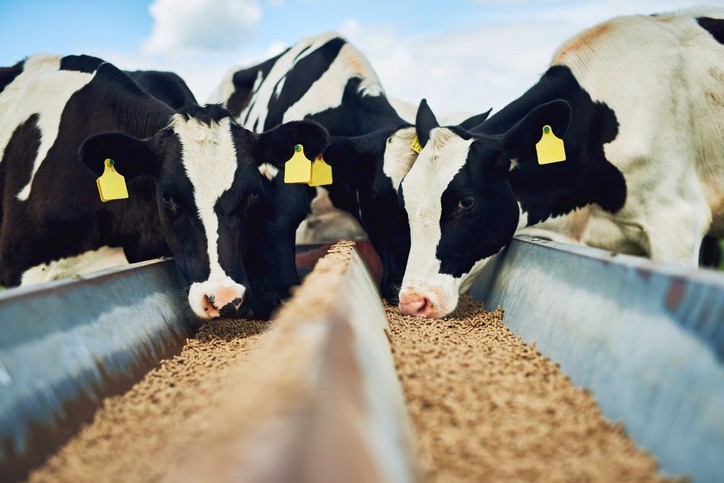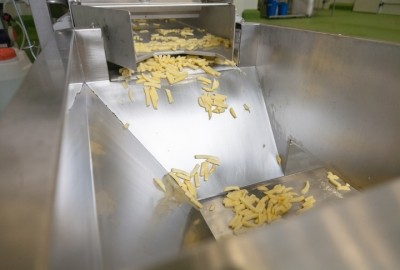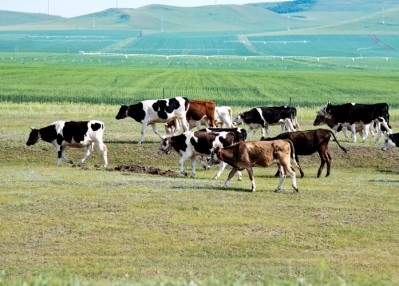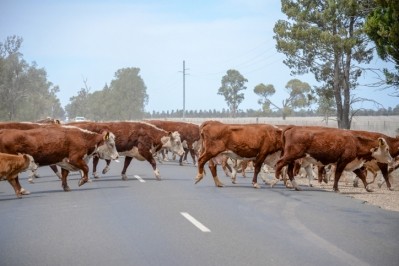UK government criticized over lack of action on reducing methane emissions

“The Department for Environment Food and Rural Affairs (Defra) has talked about mandating the use of methane suppressants by 2030 and is developing a Dairy Demonstrator program.
“But this isn’t backed up by support for farmers to use these products, whereas farmers in Belgium and Slovenia are receiving subsidies of up to 80% of the costs through new agricultural payments.”
The Green Alliance is an independent think tank that engages with business, NGOs, and policymakers to accelerate environment focused political action.
One easy and cheap solution to agriculture linked greenhouse gas (GHG) emissions is the use of safe additives in animal feed as methane blockers, according to the blog post by Green Alliance policy advisor, Rosie Allen. In December 2023, the UK's Food Standards Agency (FSA) followed the EU and Australia in approving the use of the methane suppressant, Bovaer, for use in the feed of dairy cows in England, Wales and Scotland.
"If this product was fed to just a third of English dairy cows, it could cut UK-wide methane emissions by around 1%, i.e., almost 16,000 tons per year, and equivalent to half a million tons of CO2," claimed Allen.
“Many farmers would use methane suppressants but, in the face of so many other pressures on their businesses, some of them caused by climate change, cost is holding them back. There isn’t much motivation to use them as they don’t increase yields," she added.
Supermarkets rise to the challenge
Supermarkets, such as Morrisons, Marks & Spencer and Tesco, have started funding trials, recognizing the importance of reducing emissions in their supply chains. “However, relying solely on a few motivated suppliers and selective trials will not achieve the necessary wholesale impact across the nation’s dairy herd soon enough,” argued the advisor.
UK farmer responses to the government’s call for evidence on methane suppressants indicate they would use them if costs were neutral, according to the alliance.
“As we have shown, a subsidy would cost around £25m (US$31.7m) per year to support 30% of English dairy farms.
“This is a cheaper way to reduce GHG emissions than many of the other interventions subsidized under the Sustainable Farming Incentive scheme.
“It’s not clear why methane suppressants aren’t already part of this scheme as they are an obvious candidate for subsidy: they’re effective, act quickly and at low cost. The government should change its terms and include them, helping farmers to reduce their emissions and ensure UK agriculture plays its part in a sustainable future,” remarked Allen.
Ongoing dialogue
In April, the Danish government announced it was setting aside US$74m to finance the use of feed additives to cut methane emissions from the country's 550,000 dairy cows by 30% in 2030.
During a FeedNavigator webinar last month, Dr Annie Williams, business development manager at the UK Agri-Tech Centre, spoke about whether such government subsidies are the way to go to encourage farmers to adopt methane reduction strategies:
“We’re having extensive discussions around these topics. In the UK, for example, Defra announced that by 2030, every cow would have a methane additive. However, they did not explain how they plan to implement this, particularly regarding funding. These are ongoing conversations we’re having with farmers and the entire supply chain, including processors and retailers, who need to reduce their Scope 3 emissions. Dairy products often represent a sizable portion of these emissions.
“There's considerable work being done along the supply chain, with a lot of research and development in this area. Many businesses are currently trialing different additives and exploring various methods to reduce emissions, encouraging farmers to adopt these practices. While government incentives might play a role, it’s crucial to ensure we have the science and evidence to support the effectiveness of additives in specific situations, whether for TMR-fed or grazing cattle.
“Before any government incentives are implemented, we will see significant work within the supply chain. Ensuring that the right additive is effective in the given context is essential. This groundwork will pave the way for potential government incentives, making the transition smoother and more scientifically backed.”













